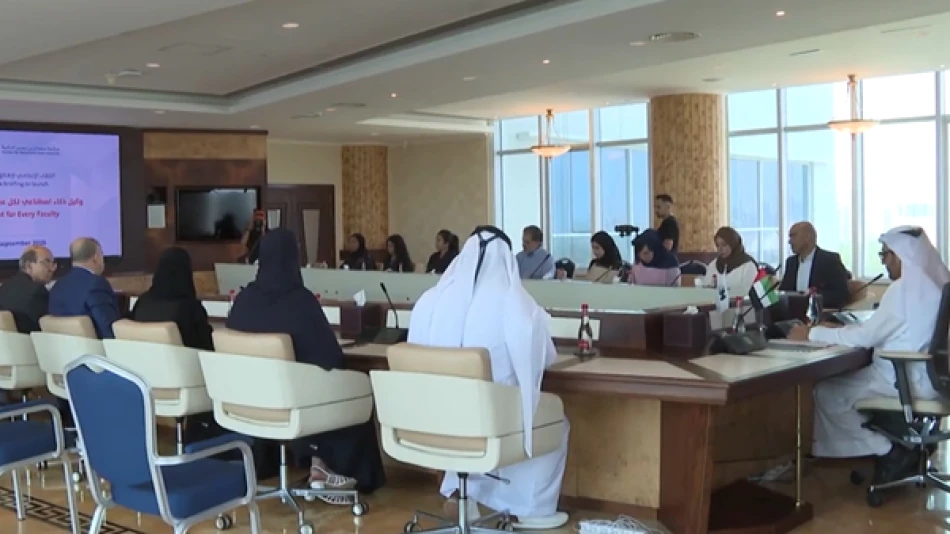
Dubai's Intelligent Assistant: Empowering Educators with Groundbreaking AI Technology
Dubai University Deploys AI Teaching Assistants, Promising 85% Faster Content Creation
Hamdan Bin Mohammed Smart University has launched the UAE's first comprehensive AI agent system for faculty members, positioning Dubai as a global hub for AI-enhanced education. The initiative promises to slash content development time by 85% while reducing faculty workload by 95%, potentially setting a new standard for how universities integrate artificial intelligence into core academic operations.
Ambitious Efficiency Targets Signal Major Shift in Higher Education
The university's AI agent system represents more than incremental improvement—it aims for transformational change. Beyond the dramatic time savings in content creation, the system projects a 40% increase in student academic achievement, suggesting AI's role extends beyond administrative efficiency to measurably improving educational outcomes.
Dr. Mansour Al Awar, the university's president, emphasized that faculty members will be freed from routine tasks to focus on higher-value activities like supervision, guidance, and scientific research. This shift mirrors trends seen in other industries where AI handles repetitive work while humans concentrate on strategic and creative responsibilities.
Comprehensive Automation Across Academic Functions
Core Capabilities
The AI system automates several critical academic functions that traditionally consume significant faculty time:
Content Development: Automated creation of educational materials, potentially standardizing quality while accelerating production timelines.
Curriculum Planning: AI-generated course outlines and syllabi, allowing for rapid adaptation to changing industry needs or academic standards.
Assessment Design: Automated test creation, which could enable more frequent and varied evaluation methods.
Performance Analytics: Student data analysis with personalized support recommendations, moving beyond one-size-fits-all teaching approaches.
In-House Development Ensures Control
Unlike universities that rely on third-party AI platforms, Hamdan Smart University developed the system internally under Professor Maitha Al Tunaiji, Vice President for AI and Technology. This approach provides greater control over data privacy and customization, addressing growing concerns about institutional dependence on external AI providers.
Strategic Alignment with National AI Ambitions
The initiative directly supports the UAE's National AI Strategy 2031 and Education Strategy 2033, reflecting the country's systematic approach to AI adoption across sectors. The UAE has consistently positioned itself as a regional technology leader, competing with Singapore and other smart city initiatives globally.
This educational AI deployment follows the UAE's broader pattern of early technology adoption, from blockchain initiatives to autonomous vehicle testing. The country's willingness to experiment with emerging technologies in public institutions often provides valuable case studies for other nations considering similar implementations.
Global Context and Competitive Implications
While universities worldwide are experimenting with AI tools, few have attempted such comprehensive faculty-wide deployment. Most institutions remain in pilot phases, testing AI for specific functions like grading or tutoring rather than systematic integration across academic operations.
The initiative's emphasis on ethical AI standards—including privacy protection, bias reduction, and transparency—addresses key concerns that have slowed AI adoption in educational settings. These safeguards may prove crucial for gaining faculty and student acceptance.
Market and Investment Perspective
For the broader education technology sector, this implementation provides a high-profile test case for AI's practical impact on institutional efficiency and educational outcomes. Success could accelerate AI adoption across regional universities and attract education technology investment to the UAE.
The project's internal development approach also signals potential opportunities for local AI talent and could position Dubai as an education technology export hub if the system proves successful and scalable to other institutions.
Most Viewed News

 Layla Al Mansoori
Layla Al Mansoori






